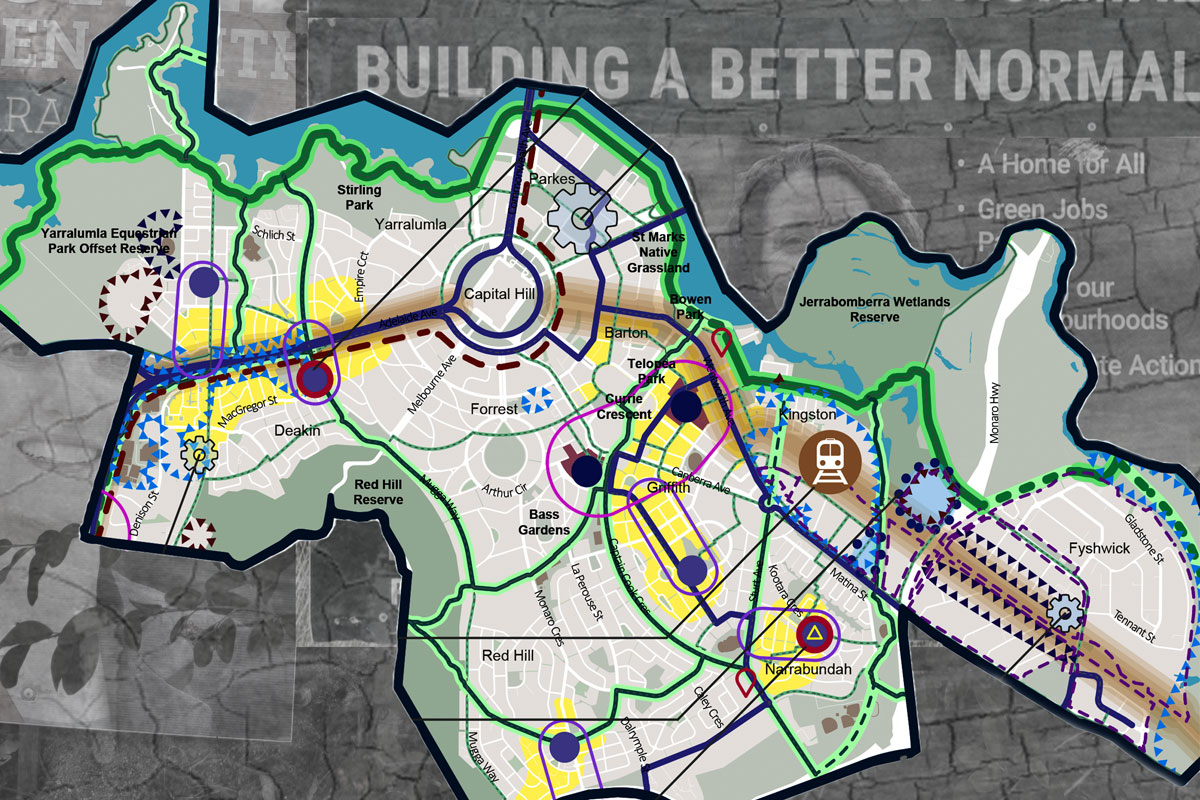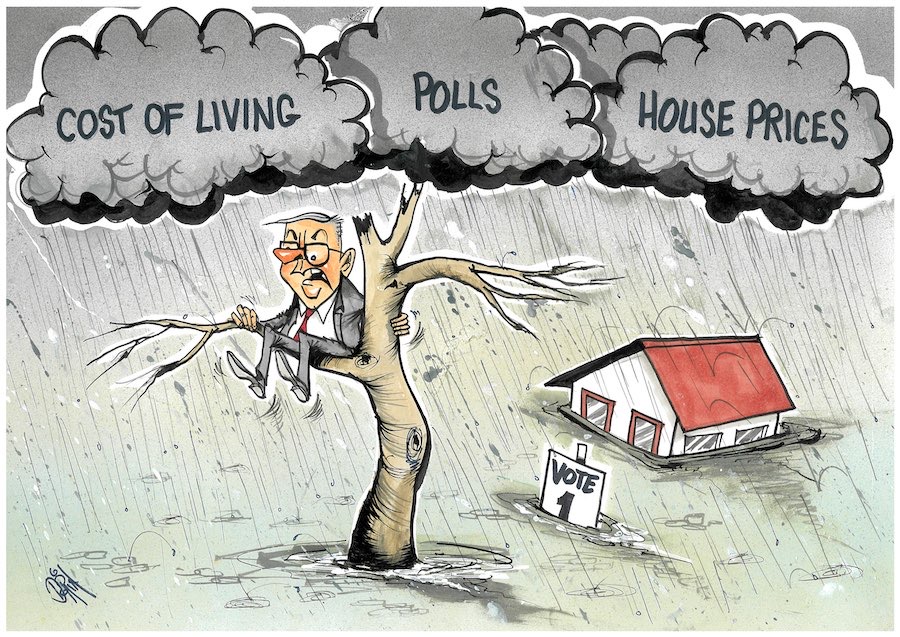
“The most serious issue for residents has been the lack of compliance and the lack of enforcement. Too many development applications have been approved that fail the ACT government’s own planning rules,” says “Canberra Matters” columnist PAUL COSTIGAN.
THE Inner South Canberra Community Council’s April meeting was reported to have been a lively event with a couple of Greenslabor politicians providing their take on the ACT chief minister’s so-called planning reforms.

Two Kurrajong politicians, Rebecca Vassarotti (ACT Greens) and Rachel Stephen-Smith (ACT Labor), spoke about the reforms. Neither said much beyond their prepared talking points that were the usual false narratives about what is really going on.
Most of the 70-plus residents in attendance had a different view and made sure that these politicians understood that people were not being fooled by the spin.
Vassarotti also needs to check with her propaganda section as the proposed reforms fail the ACT Green’s 2020 election commitments, Building A Better Normal – Plan for Canberra. Voters need to ask questions about what values the ACT Greens negotiate away to enjoy ministerial positions.
Peter Cain (Canberra Liberals) spoke about the mess being made of the city’s planning. People were impressed that Cain had made the effort to attend many community meetings and was acknowledging that residents are not happy with how this whole reform circus is being handled.
Vassarotti naïvely stated that people wanted these reforms. This is another ACT Greens’ entrenched alternative narrative. Residents over the last decade have been clear what they were looking for in the way of changes. The chief minister’s proposed deregulation of the planning rules is the complete opposite. If Vassarotti cannot see that, then she has completely lost the plot.
If she had read the submissions by residents before going to the ISCCC meeting, she would have known that, except the few usual suspects, residents are not asking for the residential zone regulations to be minimised to allow for deregulated developments to happen.
The major point that Greenslabor politicians refuse to acknowledge, but Cain has, is that the reform being sought by residents is for serious changes to the planning bureaucracy.
The planning system together with its legislation and rules has not been the key issue for residents. In saying that people know that the bureaucracy has regularly introduced variations to make it easier for developers. These developer-friendly variations have made the system more complex and have worked against announced government policies.
The most serious issue for residents has been the lack of compliance and the lack of enforcement. Too many development applications have been approved that fail the ACT government’s own planning rules. To add to those frustrations, developers have been known to ignore aspects of what has been approved with little enforcement by the ACT government on compliance.
The present system needs some tweaking, such as reviewing those questionable variations, but for those who know the present rules and planning bill, they regard them as largely fit for purpose.
The major issue that the ACT government is refusing to acknowledge is that the planning bureaucracy is the problem and is a hindrance to 21st century innovative climate ready planning and development. Despite everyone knowing this, the planning bureaucracy was directed by the chief minister to assess its own performance and to propose changes to make their life easier – and much simpler for developers.
This bureaucracy’s normal practice is to negate residents’ submissions. It has just received 400 submissions on the reforms. Based on 10 years of questionable performance, there is little chance that the submissions will be taken seriously given that the planning directorate itself is the problem.
The overriding issue is a lack of trust in the planning bureaucracy. If these proposed changes are passed, the Greenslabor trashing of the city will happen in your street and anywhere else that is to be regarded as a land bank for development.
This matter is now beyond the need for more community meetings and presentations. The time has come for locally elected politicians to declare where they stand on this effort to undo planning and to open up the city to largely unregulated developments. They need to commit to doing something very serious about the culture within the planning bureaucracy.
It is time for ACT politicians with values to stand with the residents to oppose this massive deregulation of the planning rules.
The other important topic discussed at the ISCCC meeting was the East Lake proposals and what that means for the Causeway residents. This will be the topic for this column in a couple of weeks.
Who can be trusted?
In a world of spin and confusion, there’s never been a more important time to support independent journalism in Canberra.
If you trust our work online and want to enforce the power of independent voices, I invite you to make a small contribution.
Every dollar of support is invested back into our journalism to help keep citynews.com.au strong and free.
Thank you,
Ian Meikle, editor








Leave a Reply